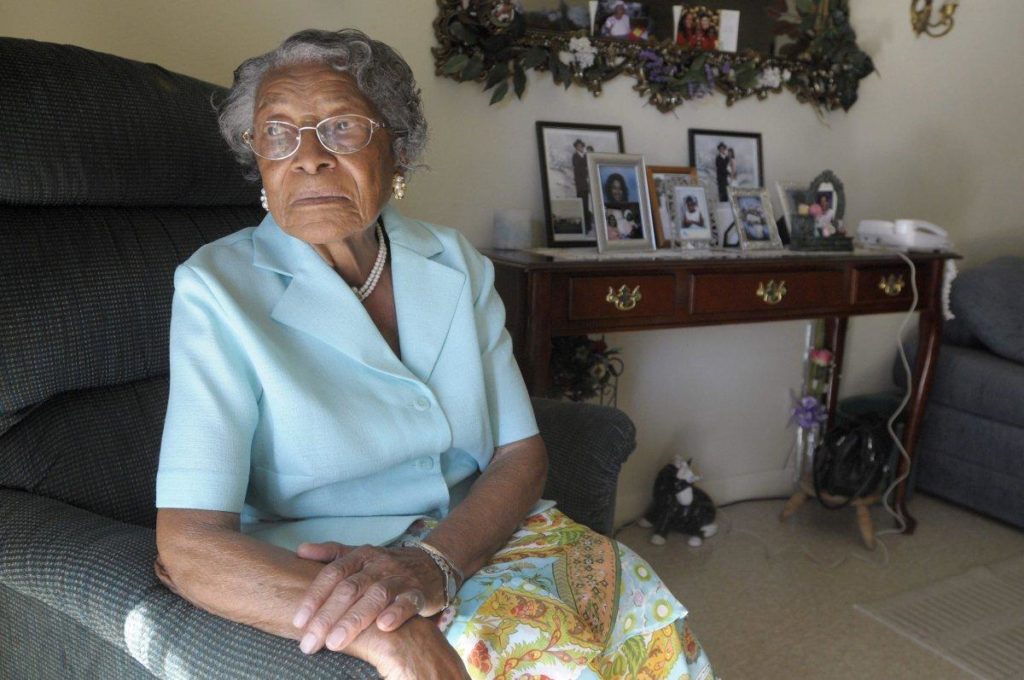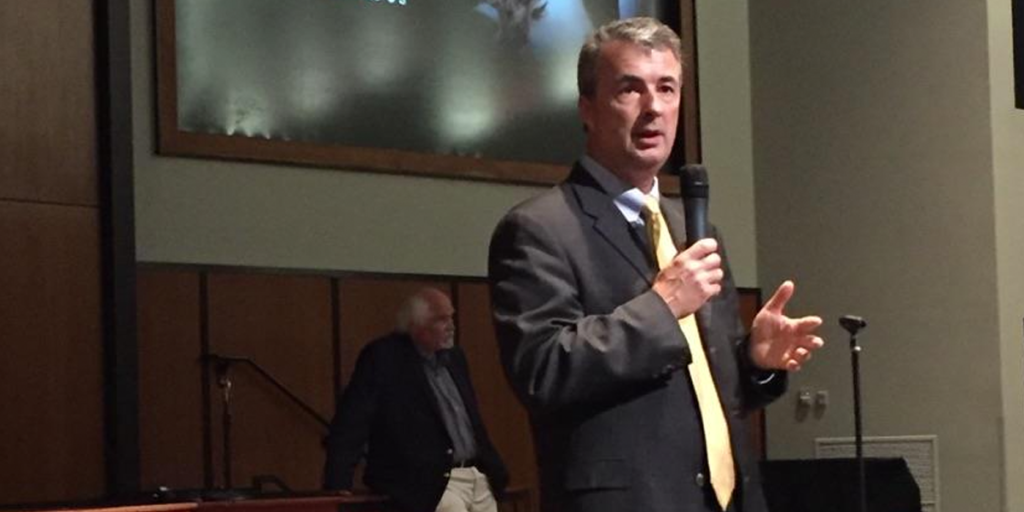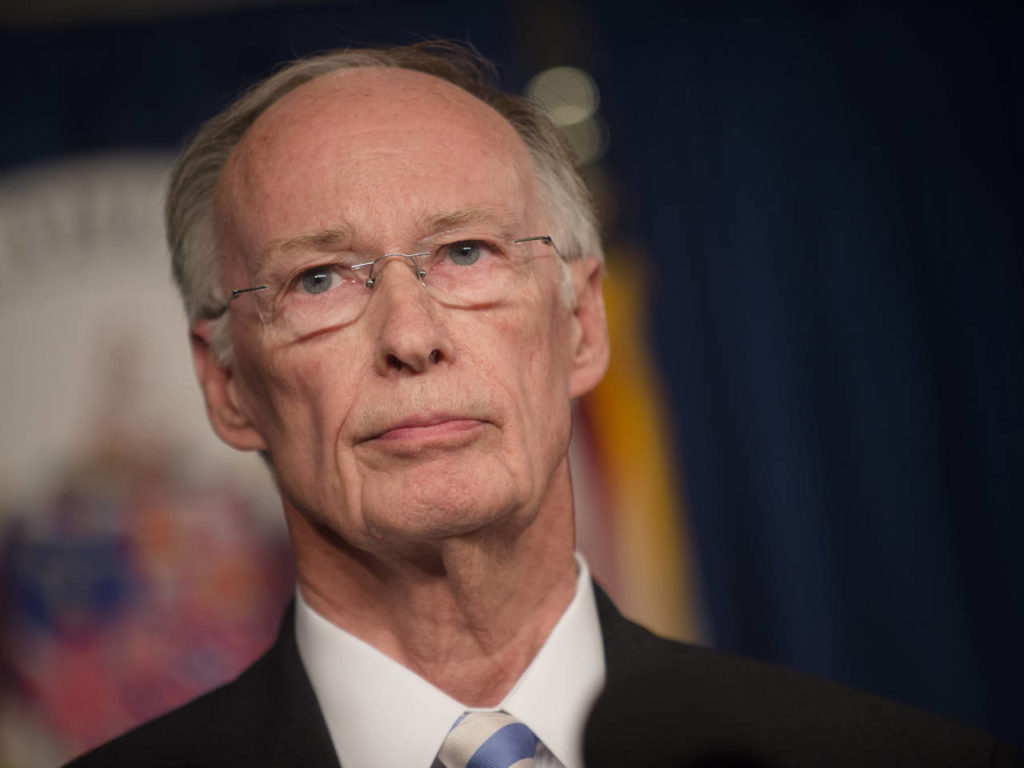Recy Taylor, Alabama civil rights icon, dies at 97

Recy Taylor, the black woman from Alabama whose rape by six white men drew national attention in 1944, passed away on Thursday morning just days before her 98th birthday on Sunday. Taylor’s brother, Robert Corbitt, confirmed with NBC News she died in her sleep at a nursing facility in her hometown of Abbeville, Ala. Taylor was 24 when she was kidnapped at gunpoint and brutally raped by six white men while walking home to her husband and young daughter after a late church service. “After they messed over and did what they were going to do me, they say, ‘We’re going to take you back. We’re going to put you out. But if you tell it, we’re going to kill you,’” Taylor told NPR in 2011. The horrific incident ultimately led her spearhead an anti-rape activism movement in the Jim Crow South. With the help of Rosa Parks — who was assigned the case by the NAACP — Taylor took on her attackers in court. Two all-white, all-male grand juries decline to indict the white men who admitted to authorities that they assaulted her. Over 70 years later, in 2011, Taylor finally received an apology from The Alabama Legislature, who passed a resolution apologizing.
Alabama joins 11-state coalition in legal fight against sanctuary cities

A coalition of 11 states, including Alabama, is urging a federal appeals court to enforce President Donald Trump‘s executive order that punishes sanctuary cities that prohibit cooperation between local law enforcement and federal immigration officials. Alabama Attorney General Steve Marshall made the announcement on Friday that Alabama joined in a friend-of-the-court brief on December 22 urging the U.S. Court of Appeals for the Ninth Circuit to overturn a lower court ruling and to enforce President Trump’s executive order opposing sanctuary cities. The brief argues the establishment of sanctuary cities would undermine the President’s immigration enforcement authority, an area where the Constitution gives him and Congress considerable power. The brief supports President’ Trump’s position in an appeal of the cases City and County of San Francisco v. Donald Trump and County of Santa Clara v. Donald Trump. “This is fundamentally a matter of public safety, in which we are asking the Court to uphold the right of Alabama and other states to fight practices that defy the rule of law and hinder the ability of law enforcement to effectively protect the public,” said Marshall. “If local entities are allowed to interfere with the enforcement of federal immigration laws, then criminal illegal immigrants may take refuge and endanger the surrounding communities. The State of Alabama supports the President’s executive order because we believe that individual states should have the right to prohibit sanctuary cities and effectively protect our citizens.” Sanctuary jurisdictions — cities and localities that prohibit or otherwise obstruct cooperation between federal and local officials on immigration enforcement — defy the rule of law and deprive law enforcement of the tools necessary for effective civil and criminal enforcement, the attorneys general assert. Upholding federal immigration laws will provide law enforcement in Alabama and other states with additional and necessary tools to identify drug offenders who enter the country unlawfully. The executive order directs the U.S. Attorney General and the Secretary of the Department of Homeland Security to ensure that sanctuary cities, to the extent permitted by law, may not receive grant dollars from specific federal programs. The order encourages states to comply with existing federal law that promotes voluntary cooperation between federal and state officials. Alabama joined the West Virginia and Louisiana-led brief with Arkansas, Florida, Kansas, Nevada, Ohio, Oklahoma, South Carolina and Texas. You may access a copy of the brief through this link.
Robert Bentley says he chose to walk away from office, still sees Rebekah Mason ‘occasionally’

Former Gov. Robert Bentley emerged from the shadows this week, telling the Decatur Daily he decided to leave office rather than risk facing felony charges and losing his medical license. “I was told that I was going to be charged, even though the grand jury had not met, that I was going to be charged with a felony for (two ethics violations related to his campaign finance account). If you have a felony, you lose your medical license, and I was not going to lose my medical license,” Bentley, who now owns a dermatology clinic in Tuscaloosa, told the Decatur Daily. “So, I agreed to (two misdemeanors) and walked away.” In April, Bentley was booked on two misdemeanor charges — one for failing to file a major contribution report and another for knowingly using campaign contributions for personal use — in the midst of a corruption and willful neglect of duty investigation against him, a month after he acknowledged making inappropriate remarks to a female political adviser, Rebekah Caldwell Mason. Upon pleading guilty, he resigned from the Governor’s office. When asked about Mason, Bentley said told the Decatur Daily, “I still see her occasionally.” Read Bentley’s full interview here.
Mobile, Ala. joins the fights against opioid manufacturers

The City of Mobile, Ala. is hoping to hold the companies it says is responsible for dumping millions of dollars’ worth of prescription opiates into the community accountable. On Wednesday, the City joined nationwide public nuisance lawsuit against the pharmaceutical drug manufacturers and wholesale drug distributors that made the opioid epidemic possible. The move ensures the Port City would be entitled to a portion of any potential financial settlement. The suit is against five of the largest manufacturers of prescription opioids and their related companies and against the country’s three largest wholesale drug distributors. The manufacturing companies pushed highly addictive, dangerous opioids and falsely represented to doctors that patients would only rarely succumb to drug addiction. The distributors breached their legal duties to monitor, detect, investigate, refuse and report suspicious orders of prescription opioids. Because prescription opioids are a highly addictive substance, Congress designed a system in 1970 to control the volume of opioid pills being distributed in this country. It let only a select few wholesalers gain the right to deliver opioids. In exchange, those companies agreed to do a very important job – halt suspicious orders and stop control against the diversion of these dangerous drugs to illegitimate uses. But in recent years, they failed to do that and Mobile is now paying the price. The City of Mobile is working with a consortium of law firms to hold pharmaceutical drug manufacturers and wholesale distributors accountable for failing to do what they were charged with doing under the federal Controlled Substances Act – monitor, identify and report suspicious activity in the size and frequency of opioid shipments to pharmacies and hospitals. “Homes have been broken and families torn apart by this epidemic, which has claimed victims from all walks of life,” said Mayor Sandy Stimpson. “The pharmaceutical drug manufacturers and wholesale drug distributors failed in their legal obligation to notify the Drug Enforcement Administration of suspicious orders, even as the number of pills flowing into our city rose and rose.” The city has hired expert law firms experienced in holding the powerful pharmaceutical industry accountable. Those firms include: Levin, Papantonio, Thomas, Mitchell, Rafferty & Proctor; Baron & Budd; Greene Ketchum Bailey Farrell & Tweel; Hill, Peterson, Carper, Bee & Deitzler; McHugh Fuller Law Group; Taylor Martino, P.C.; Zarzaur Mujumdar & DeBrosse; Jinks, Crow & Dickson, P.C.; Lloyd & Hogan; The Frankowski Firm, LLC; Cusimano, Roberts, & Mills; and Rogers Law Group, PA. The citizens of Mobile continue to bear the burden of the cost of the epidemic, as the costs of treatment for addiction, education and law enforcement have continued to rise. Funds recovered through a winning lawsuit would be used to assist the city in maximizing resources in overcoming the opioid epidemic. Birmingham, Ala. and several other Alabama cities have also joined the suit.
Martha Roby: Tax cuts for the New Year

This time around, the new year is offers something extra exciting for the American people. I’m pleased to report that Congress has finally passed our historic, pro-growth tax reform and Americans will soon being experiencing the benefits. After months of work, we have delivered on our promise to cut taxes, bring balance to the tax code, and jumpstart job growth. While the House passed its version of tax reform months ago, differences between the House and Senate versions of the bill had to be worked out in a conference committee. I was proud to support the final product and vote alongside my colleagues to send the Tax Cuts and Jobs Act to the President’s desk. The Tax Cuts and Jobs Act lowers individual tax rates and roughly doubles the standard deduction for individuals and married couples. That means less of your paycheck is subject to taxes beginning this year. The average, median-income American family will see about $2,100 in tax relief – not just one year, but annually. For moms and dads working to make ends meet, having a few thousand extra dollars in the budget can make a big difference. It’s your money to begin with and I believe you know how to spend it better than the federal government does. Another important aspect of our tax reform plan is lowering business taxes. A lot of people don’t realize that our effective tax rate for businesses is among the highest in the world. All that does is send jobs overseas and make it harder for small businesses to be successful. By lowering business taxes to a globally-competitive 21 percent, we can boost our economy and spur job growth here in the United States. While our bill eliminates many unnecessary and burdensome special-interest deductions, it also preserves a lot of the popular tax deductions people count on, including the student loan interest deduction, the deduction for teachers’ expenses, the medical expense deduction, the charitable giving deduction , the adoption tax credit, and the mortgage interest deduction. It doubles the Child Tax Credit to help working families, and it eliminates the Obamacare individual mandate tax penalty. After the bill passed, I joined my colleagues and the President at the White House to celebrate this monumental accomplishment. My children, Margaret and George were on break from school for the holidays, so they were able to be in Washington and attend the event with me. I am so thankful they were able to witness this historic moment. This is a once-in-a-generation opportunity to reduce the tax burden on American families and grow our economy – and I’m glad we could deliver on this promise we’ve been making for so many years. A lot of misinformation has been spread by those who oppose this plan, and it’s generated some confusion about what our bill does and does not do. Regardless, I am confident the results will speak for themselves. The American people will know who was telling the truth when they see more money in their pockets and experience a growing economy thanks to our historic tax reform plan. I am proud that we were able to come together and deliver this relief to families and businesses just in time for 2018. Happy New Year! ••• Martha Roby represents Alabama’s Second Congressional District. She lives in Montgomery, Alabama with her husband Riley and their two children.


